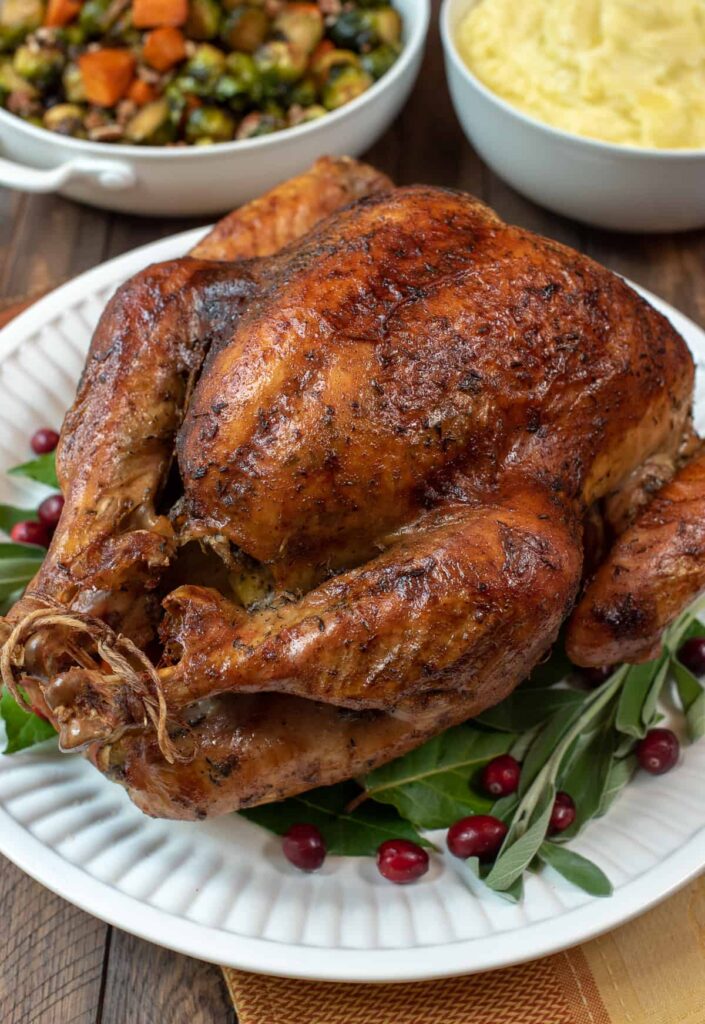How many calories in 8 oz chicken breast?

Calories in an 8-ounce (8 oz chicken breast: chicken is a meat with well-known virtues. Chicken has long been considered a go-to food for a healthy menu.
All meat and poultry do not contain carbohydrates, and chicken, in particular, contains a small amount of fat compared to meat, making it low in calories. Each part of a chicken has a different number of calories than the other, so the calories in a chicken thigh differ from the number of calories in wings; the same is true of the number of calories in chicken breast.
1. How many calories are in an 8-ounce chicken breast?
There are 376 calories in 8 oz. of boneless, skinless chicken breast.
Chicken breast is the most popular cut of chicken; it is high in protein and low in fat, which makes it a good choice for people trying to lose weight.
A cooked skinless and boneless chicken breast (172 grams) exhibits the following nutritional alterations:
Calories: 284
Protein: 53.4 grams
Carbohydrates: 0 grams
Fat: 6.2 grams
A 3.5-ounce (100-gram) serving of chicken breast contains 165 calories, 31 grams of protein, and 3.6 grams of fat.
This means that about 80% of the calories in a chicken breast come from protein and 20% from fat.
Keep in mind that these amounts refer to a chicken breast without adding ingredients. Once you cook it in oil or add marinades or sauces, you increase the total number of calories, carbohydrates, and fat.
see also Unlocking Efficiency: Discover the Power of the AT&T Shift App
2. Calories in 8-ounce chicken breast; Chicken skin adds calories
While about 180 g of skinless chicken breast contains 300 calories, 80% protein, and 20% fat, these numbers vary widely when you include the skin.
One cooked boneless chicken breast with skin (196 grams) contains:
Calories: 386
Protein: 58.4 grams
Fat: 15.2 grams
In a skinned chicken breast, 50% of the calories come from protein and 50% from fat. Plus, eating the skin adds almost 100 calories.
Likewise, a skinned chicken wing (34 grams) contains 99 calories, compared to 42 calories in a skinless wing (21 grams). So 60% of the calories in skinned chicken wings come from fat, compared to 36% in a skinless wing.
So, if you are controlling your weight or fat intake, eat your skinless chicken to minimize calories and fat.
3. Calories in 8-ounce chicken breast; The benefits of chicken breast
In general, chicken is one of the foods rich in important nutrients, and it is an important component of a healthy diet. Chicken brings many benefits to the body when consumed. Besides being low in calories, it is rich in protein, that brings multiple benefits to the body, including:
- It may contribute in losing weight because protein promotes a feeling of satiety.
- It may aid muscle growth with resistance exercise.
- Protein helps metabolize calcium, which is important for bone health.
- It boosts male fertility as it contains testosterone.
- Control of blood pressure: the consumption of chicken, in general, is beneficial for controlling blood pressure.
- Skinless breasts are a good source of vitamin B6. It contains 20% of the recommended daily value.
- Chicken breast is a great source of niacin. Skinless breasts contain 100% of the recommended daily value.
- Skinless chicken breast is an excellent source of pantothenate. It contains 30% of the recommended daily value.
- Chicken breast relieves stress during the day because it contains two important nutrients for the body, namely tryptophan and vitamin B5.
Also Visit: Guide To Google Pixelbook 12In 2023





Responses